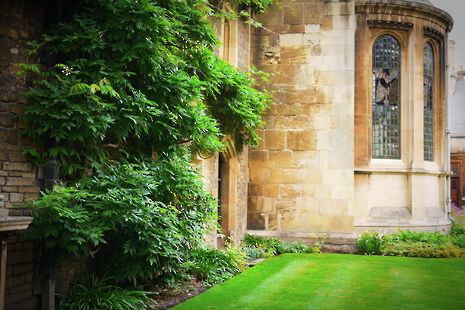Caius launches Medicine shadowing scheme
The college has introduced a new way to encourage state school students to apply

Gonville and Caius College has launched a Medicine shadowing scheme, offering opportunities for state school students lacking connections in the profession.
Based on CUSU’s Shadowing Scheme, which provides students at schools with a low Oxbridge intake with an opportunity to experience Cambridge for three days, Caius’s scheme was the brainchild of two Gonville and Caius Medicine students who were concerned by the challenges facing state school pupils who may have difficulty getting into the medical profession.
The Caius scheme is being devised, organised and run entirely by students. 20 potential applicants were given the chance to spend three days at the college, residing in undergraduate accommodation, attending supervisions and lectures. Each undergraduate is assigned a student to shadow and looked after them, with students giving up their rooms for pupils.
The aim is to give practical advice and show potential applicants that Cambridge students were “not all posh boys in red trousers”.
Luke Bibby, President of Gonville and Caius MedSoc, said that he “thought it would be great to show sixth-formers what it is really like to study medicine at Cambridge”. Bibby, who went to a state school, attended an access scheme at the college in Year 12 and was the first in his family to go to university. Unable to get work experience in a hospital, he ended up volunteering in a care home and shadowing a physiotherapist.
He remarked that participating in the access scheme “made me realise that it would be achievable to study Medicine in Cambridge and, from then on, I just concentrated on getting the grades.”
As a very competitive course, Medicine is often dominated by students who attended highly-academic selective schools.
Ellie Walder, MedSoc’s Access Officer, emphasised it was “much easier to get work experience if you have a close relative or family friend in the medical profession.”
She added: “I wanted to show state school students who don’t come from medical families how to maximise their chances of getting in and to advise them about how to get work experience without contacts. A lot of students told me that before they came they felt they wouldn’t fit in, but now, having been here, they felt that they would apply.”
With a reputation for Medicine, accepting approximately 25 students per year, Caius has the greatest intake of medics. Research by the Sutton Trust, however, shows that of Britain’s top doctors, 61 per cent were privately educated, nearly a quarter at grammar schools and only 16 per cent at comprehensives.
Michael Turnbull-King, 17, from Tring School, a comprehensive in Hertfordshire, said: “It has been really good to attend real lectures and supervisions. I had no idea what they entailed. It has been really useful to experience what it would be like […] because it’s very different to school. It’s also made me realise that as long as I can get the grades I have as good a chance as anyone to get in.”
 News / Cambridge academics stand out in King’s 2026 Honours List2 January 2026
News / Cambridge academics stand out in King’s 2026 Honours List2 January 2026 Interviews / You don’t need to peak at Cambridge, says Robin Harding31 December 2025
Interviews / You don’t need to peak at Cambridge, says Robin Harding31 December 2025 Comment / What happened to men at Cambridge?31 December 2025
Comment / What happened to men at Cambridge?31 December 2025 Features / “It’s a momentary expression of rage”: reforming democracy from Cambridge4 January 2026
Features / “It’s a momentary expression of rage”: reforming democracy from Cambridge4 January 2026 News / Varsity’s biggest stories of 202531 December 2025
News / Varsity’s biggest stories of 202531 December 2025









